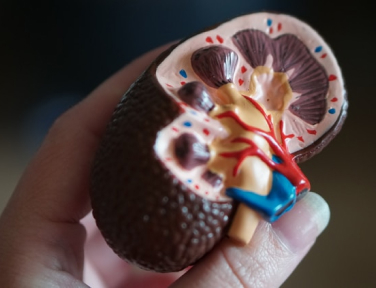Kidney tests should mandatorily be part of your routine health checkup. If detected early, kidney diseases can be prevented from worsening or the progression of the disease can be delayed with proper treatment. Kidney diseases are usually asymptomatic in the initial stages. People with a family history of Diabetes, hypertension, heart disease or kidney diseases should be more cautious and watchful as they are more prone to develop diseases related to kidney.
The following tests may be advised to ascertain the kidney health:
- Renal Function Test: This is the most basic test that tells you about your kidneys.
- It measures the levels of various substances in the blood including glucose, some minerals, proteins, electrolytes, etc.
- This test gives an idea of the basic functioning of the kidneys.
- The doctor may advise for additional tests based on the results and values of this test.
- Urinalysis: A routine urine test gives an insight into the kidney health by depicting the presence of blood, protein and other substances in the urine
- Serum Creatinine: Levels of creatinine in serum helps in identifying the need of dialysis for a kidney disease patient
- Glomerular Filtration Rate (GFR): The value of GFR helps in assessing the filtering capacity of the kidneys.
- This is calculated through a mathematical formula using the value of serum creatinine, age, height, weight and other details of the patient BUN (Urea)/
- Creatinine Ratio:This value is a comparison of the blood urea and creatinine
Some key tips to keep your kidneys healthy are:
- Drink plenty of fluids: Having adequate fluids will keep your GFR maintainedKeep
- Keep your blood sugar maintained: Maintaining blood sugar is important as diabetes further complicates and increases the risk of kidney disease
- Stay active and fit: Staying active and fit helps reducing the risk of heart diseases and hence helps in keeping kidneys healthy
- Maintain a healthyweight and have nutritious diet: Being overweight increases the risk of diabetes and hypertension and hence increases the risk of kidney diseases
- Quit smoking: Smoking has a detrimental effect on the blood vessels all over the body including kidneys. It can reduce blood flow to the kidneys and have a negative impact on kidney health.
- Be cautious of the over-the-counter drugs you take: Taking certain Non steroidal anti inflammatory drugs (NSAIDs) for chronic pain can affect the kidneys in the long run and hence increase the risk of kidney disease significantly.






